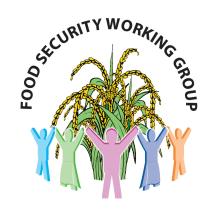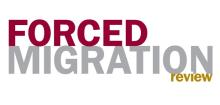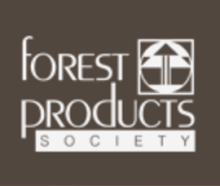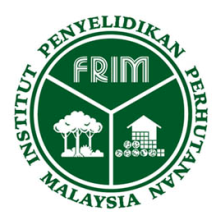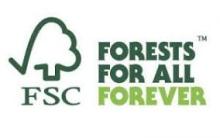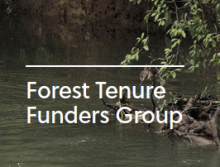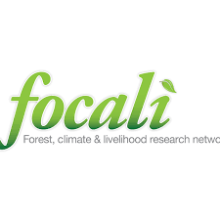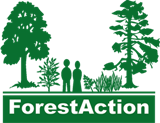The Land Library includes resources from more than 1,900 national and international information providers. Learn more about the organizations and institutions using the Land Portal to share their open-access research, data and stories.
Food and Agriculture Organization of the United Nations (FAO)
The Food and Agriculture Organization of the United Nations leads international efforts to defeat hunger. Serving both developed and developing countries, FAO acts as a neutral forum where all nations meet as equals to negotiate agreements and debate policy. FAO is also a source of knowledge and information. We help developing countries and countries in transition modernize and improve agriculture, forestry and fisheries practices and ensure good nutrition for all. Since our founding in 1945, we have focused special attention on developing rural areas, home to 70 percent of the world's poor and hungry people.
Food First
History
Rooted in the early experiences and sensibilities of its founders—Frances “Frankie” Moore Lappé and Joseph Collins—Food First has been working to end the injustices that cause hunger since 1975. Since its first book, Food First: Beyond the Myth of Scarcity, Food First has gone on to publish over 60 books and hundreds of articles and research reports exposing the root causes of hunger and amplifying the voices of the communities and movements advancing real solutions. Over the years Food First staffers, fellows and interns have gone on to form new organizations including Pesticide Action Network, Neighbor to Neighbor, Global Exchange, Center for Living Democracy, Focus on the Global South, Korea Policy Institute, Land Research Action Network, Oakland Institute and the Oakland Food Policy Council. In 2010, Food First launched its Food Sovereignty Tours program to bring scholars, activists and farmers to the front lines of the global food movement. See below for a more detailed history.
Our Work
Food First is a “people’s think tank” dedicated to ending the injustices that cause hunger and helping communities to take back control of their food systems. We advance our mission through three interrelated work areas: research, education and action. These work areas are designed to promote informed citizen engagement with the institutions and policies that control our food and to integrate local, national and global efforts. Our work both informs and amplifies the voices of social movements fighting for food justice and food sovereignty.
Food Products Press
Food Products Press is a publishing company.
Food Security III Cooperative Agreement, Michigan State University
On September 30, 2002, USAID awarded the Food Security III Cooperative Agreement (under a Leader with Associates [LWA] Agreement mode) to the Department of Agriculture, Food and Resource Economics at Michigan State University. It was a potential 10-year project, with renewal after the first 5 years contingent on an evaluation. The evaluation of the first 5 years was favorable, and the FS III Leader Award was extended for the remaining 5 years, through September 30, 2012. In USAID the project was managed in the EGAT and later Food Security Bureaus in close cooperation with the Africa Bureau.
Food Security Policy Group
The Canadian Food Security Policy Group is a network of Canadian development and humanitarian organizations with expertise in global food systems, and food security in the Global South. Since 1996, we have been carrying out joint advocacy, research and policy dialogue to ensure that Canada’s international agricultural and development policies advance global food security in an inclusive, environmentally sustainable, and coherent way.
Food Security Working Group
What is the FSWG?
The FSWG professional network of local, international NGOs, Community Based Organizations and individuals who are working and interested in food security related issues in Myanmar. The FSWG addresses cross-cutting social, economic, ethnic, and environmental issues in food security through capacity building, managing knowledge and information, and advocacy, through effective network collaboration, communication, monitoring and evaluation, and organisational performance.
Vision
For all women, men and children of Myanmar, at all times, to have physical and economic access to sufficient, safe and nutritious food to meet their dietary needs and food preferences for an active and healthy lifestyle.
Mission
- To improve the quality of, and the enabling environment for, food security interventions and policies implemented in Myanmar through mobilising the collective capacities of the network to:
- Build the capacity of food security actors in Myanmar to deliver food security programs;
- Manage information and knowledge that enables more effective action to achieve food security in Myanmar;
- Advocate to decision-makers within political, economic, and social systems and institutions that effect food security in Myanmar so that they are influenced to take action for greater food security;
- Coordinate the utilisation of scarce resources and capabilities for addressing food security in Myanmar; and
- Enable the FSWG to maintain the highest standards of excellence and integrity for a network organisation, responding to the needs of its members by being efficient, transparent, impact-oriented, collaborative, communicative, and enabling.
Forced Migration Online
Forced Migration Online (FMO) provides online access to a diverse range of resources concerning the situation of forced migrants worldwide. By bringing together this collection of useful and time-saving resources, our primary aim is to support and facilitate research and policy making in the field.
The FMO collection adheres to international standards for organizing, managing and displaying information about the resources included in its collection.
The website is coordinated by a small team, based at the Refugee Studies Centre, Department of International Development, University of Oxford.
Forced Migration Review
Forced Migration Review (FMR) is the most widely read publication on forced migration – available in English, French, Spanish and Arabic, and free of charge in print and online. It is published by the Refugee Studies Centre in the Oxford Department of International Development, University of Oxford. Through FMR, authors from around the world analyse the causes and impacts of displacement; debate policies and programmes; share research findings; reflect the lived experience of displacement; and present examples of good practice and recommendations for policy and action.
Fordham International Law Journal
As our world becomes increasingly interconnected and globalized through advancements in technology, diplomacy, and other means, a publication like the Fordham International Law Journal becomes an important platform for sharing and understanding the legal issues that arise across borders and comparing them with what is occurring within our own borders. Currently in its 42nd year of publication, the Fordham International Law Journal is one of the most competitive international law periodicals in the world. The ILJ is consistently ranked in the top 10 among student-edited international law journals and, according to a recent study, is one of the most frequently cited student-edited legal publications dedicated to the study of international law. The ILJ attracts contributions from prominent statespersons and members of the academic, legal, and political communities. Journal pieces have been cited in numerous US federal court decisions, US Supreme Court briefs and decisions, international courts decisions, law review articles, and CFR and ALR annotations. Past volumes featured pieces from:
-
Kofi Annan, Advocating for an International Criminal Court, 21 FORDHAM INT’L L.J. (1997)
-
Boutros Boutros-Ghali, The Role of International Law in the Twenty-First Century: A Grotian Moment, 18 FORDHAM INT’L L.J. 1609 (1995)
-
Madeleine Albright, International Law Approaches in the Twenty-First Century: A U.S. Perspective on Enforcement, 18 FORDHAM INT’L L.J. 1595 (1995)
-
Philippe Kirsch, The Preparatory Commission for the International Criminal Court, 25 FORDHAM INT’L L.J. 563 (2002)
-
Philippe Kirsch, The International Criminal Court: A New and Necessary Institution Meriting Continued International Support, 28 FORDHAM INT’L L.J. 292 (2005)
-
Richard J. Goldstone, The Trial of Saddam Hussein: What Kind of Court Should Prosecute Saddam Hussien and Others for Human Rights Abuses?, 27 FORDHAM INT’L L.J. 1490 (2004)
The ILJ publishes five books annually comprised of articles, essays, book reviews, and student-written notes and comments, covering a variety topic areas with a strong nexus to international law. In association with Fordham’s Crowley Program on International Human Rights, the ILJ annually publishes the Crowley Report, a survey of the program’s yearly international human rights mission. The ILJ assists in the organization and production of the Fordham Corporate Law Institute’s Conference on International Antitrust Law and Policy, the Leitner/Stein Colloquium, and the New York City Bar Association’s reception for the legal advisers of the foreign ministries of the United Nations. Every spring, the ILJ hosts a symposium covering a current issue in the international community. The ILJ maintains an especially strong relationship with officials from the European Union, and consistently publishes articles devoted to EU law. Past volumes have included contributions from judges on the European Court of Justice, commissioners of the European Commission, and other senior EU officials.
Foreign, Commonwealth and Development Office
The Foreign, Commonwealth and Development Office (FCDO) pursuseds national interests and project the UK as a force for good in the world. We promote the interests of British citizens, safeguard the UK’s security, defend our values, reduce poverty and tackle global challenges with our international partners.
Forest Inform
Forest Inform Pty Ltd provides "Land Logic Services" that combine government agencies' and stakeholders’ decision rules with accurate spatial data to resolve forest land use conflicts, integrate regional development, prepare conservation plans, and Reduce Emissions from Deforestation and Forest Degradation (REDD+).
Forest Peoples Programme
Mission
Forest Peoples Programme supports the rights of peoples who live in forests and depend on them for their livelihoods. We work to create political space for forest peoples to secure rights, control their lands and decide their own futures.
Goals
- Get the rights and interests of forest peoples recognised in laws, policies and programmes
- Support forest peoples to build their own capacities to claim and exercise their human rights
- Counter top-down policies and projects that threaten the rights of forest peoples
- Promote community-based sustainable forest management
- Ensure equity, counter discrimination and promote gender justice
- Inform NGO actions on forests in line with forest peoples’ visions
- Link up indigenous and forest peoples’ movements at the regional and international levels
Forest Products Society
The Forest Products Society is an international not-for-profit technical association founded in 1947 to provide an information network for all segments of the forest products industry. Learn more about the Society's history. Membership is open to all interested individuals and organizations.
Society members represent a broad range of professional interests including private and public research and development, industrial management and production, marketing, education, government, engineering and consulting. The Society convenes technical conferences, produces several journals including the peer-reviewed Forest Products Journal and publishes books on topics of relevance to the forest products industry.
The Forest Products Society also functions as the distributor for the technical publications of the American Wood Council, which constitutes an invaluable information resource on wood construction for engineers, architects, builders and building code regulators. Topics include engineering data, state-of-the-art design technologies and construction standards.
VISION
To be the international leader for advancing the sustainable use of renewable cellulosic resources through science and technology.
MISSION
Contribute to global stewardship by encouraging the social, economic and environmentally sustainable use of wood and other renewable cellulosic materials.
STRATEGY
Implement the Mission and provide value to members and partners by:
- Leading the international exchange of scientific discoveries, innovation and technical knowledge,
- Facilitating innovative and intelligent, contemporary use of renewable materials within architectural, engineering, manufacturing, construction and bioenergy communities,
- Educating and shaping public opinion and policy about renewable materials through science-based knowledge,
- Providing services to build the scientific knowledge base, ultimately resulting in technological advancements for end-users.
Forest Research
Forest Research is the Forestry Commission’s research agency. Forest Research is Great Britain’s principal organisation for forestry and tree related research and is internationally renowned for the provision of evidence and scientific services in support of sustainable forestry. Forest Research works for many Government departments, all the devolved administrations, forestry and land management stakeholders, environmental NGO’s and the European Union.
Our aims
- To provide evidence and expertise to inform the development and delivery of UK Government and devolved administration forest policies
- To provide innovative applied research, development, monitoring and scientific services to UK, European and international forestry stakeholders
- To transfer research knowledge directly, and/or in partnership with others, to UK and international audiences
Our priorities
Our work is founded on the principle that research and evidence are central to informed policy-making and sustainable land management practices. The Government’s Forestry and Woodlands Policy Statement(January 2013), Defra’s 10 Point Plan for Growth (2013) and also its One Business Evidence Project, the Welsh Government’s Woodland Strategy “Woodlands for Wales” (2009), the Scottish Forestry Strategy Implementation Plan (2013-16), and the Forestry Commission’s Science and Innovation Strategy (2014) have all helped to shape our priorities.
Our priorities are to provide the science and evidence to:
- Protect our trees and forests
- Enhance forest ecosystem resilience and service provision
- Ensure sustainable management and adaptation of our forests to climate change
- Effect knowledge exchange
- Grow our business
Forest Research Institute Malaysia
Forest Research Institute Malaysia (FRIM) is one of the leading institutions in tropical forestry research in the world. Founded in 1929, the former Forest Research Institute became a fully-fledged statutory body, governed by the Malaysian Forestry Research and Development Board (MFRDB) under the Ministry of Primary Industries, in 1985.
Presently, both FRIM and MFRDB are under the purview of the Ministry of Natural Resources and Environment. The Institute sits on a 545-ha site adjacent to the Bukit Lagong Forest Reserve in the Kepong municipality, 16 km northwest of Kuala Lumpur. FRIM was awarded the MS ISO 9001:2000 certification in December 2007. It was gazetted as a ‘Natural Heritage Site’ on 10 February 2009 under the National Heritage Act 2005, and officially declared as a National Heritage on 10 May 2012. The Institute is helmed by Dato’ Dr Abd Latif Mohmod as its Director General since May 2008.
Research Areas
FRIM’s research activities are organised under the following divisions:
-
Forestry & Environment: To develop technologies and provide solutions to support and ensure the sustainable management of resources and ecosystem services of the natural, urban and recreational forests.
- Forestry Biotechnology: To develop technologies and products based on biodiversity resources for forests and herbal plantations for related industries through biotechnological approaches.
- Forest Products: To focus on the development of R, D and C towards improvement on durability, service life and utilisation of wood resources and ligno-cellulosic materials available for producing various high quality/value-added products.
- Forest Biodiversity: To provide and develop key scientific knowledge to safeguard biodiversity and ecosystem services in Malaysia for their wise management and sustainable utilisation.
- Natural Products: To support the national bio-economy agenda via the empowerment of natural product based industries through bioactive feedstock security.
- Economic & Strategic Analysis: To conduct socio-economic research and strategic analysis on forestry and environmental issues for national development.The results of FRIM’s research are published in peer-reviewed scientific journals and also transferred to relevant government agencies involved in overseeing and managing forests, as well as forest-related industries.
Forest Stewardship Council
We are a global not-for-profit organization that sets the standards for what is a responsibly managed forest, both environmentally and socially.
When timber leaves an FSC-certified forest we ensure companies along the supply chain meet our best practice standards also, so that when a product bears the FSC logo, you can be sure it’s been made from responsible sources. In this way, FSC certification helps forests remain thriving environments for generations to come, by helping you make ethical and responsible choices at your local supermarket, bookstore, furniture retailer, and beyond.
We don’t set these standards alone. We consult with our global network of environmental, social, and economic members to ensure that forest standards represent everyone’s needs, from Indigenous Peoples to endangered animal species.
FSC members include some of the world’s leading environment groups (WWFand Greenpeace1), social organizations (the National Aboriginal Forestry Association of Canada), businesses (Tetra Pak and Mondi PLC) as well as forest owners and managers, processing companies, campaigners, and individuals like you.
FSC is also a member of the ISEAL alliance, a global association of social and environmental standards systems that includes Fairtrade, the Marine Stewardship Council (MSC), and Rainforest Alliance.
Forest Stewardship Council
FSC International presents itself as leader in sustainable forest management, operating the world’s most rigorous and trusted forest certification system. They work on sustainable forestry standards like providing certifications. In partnership with a diverse ecosystem of stakeholders, they develop new solutions focused on:
- Responsible Sourcing: Helping businesses work with forests responsibly
- Conservation: Maintaining and enhancing forest value
- Restoration: Accelerating forest recovery
Forest Tenure Funders Group
The Funders Group has been established to coordinate donor collaboration on Pledge ambitions. This includes collective action to scale-up mechanisms enabling a greater share of donor funding to reach IPLC stakeholders.
The Funders Group is committed to ongoing dialogue with both IPLC leaders and wider stakeholders to facilitate exchanges of information, feedback on Pledge progress, and increase opportunities for collaboration.
Donors need to be held to account on delivery of Pledge Commitments. The Funders Group will report annually on Pledge progress to increase transparency, with the first report launched at COP27.
The Funders Group is currently chaired by the UK, and Ford Foundation as Vice Chair. The Funders Group meets quarterly to advance progress on Pledge commitments.
Forest Trends
Mission
Forest Trends works to conserve forests and other ecosystems through the creation and wide adoption of a broad range of environmental finance, markets and other payment and incentive mechanisms. Forest Trends does so by:
- Providing transparent information on ecosystem values, finance, and markets through knowledge acquisition, analysis, and dissemination;
- convening diverse coalitions, partners and communities of practice to promote environmental values and advance development of new markets and payment mechanisms; and
- demonstrating successful tools, standards, and models of innovative finance for conservation.
Forest, Climate, and Livelihood research network
Focali (Forest, Climate, and Livelihood research network) is a Swedish research network focusing on forest / bio-energy, climate change and poverty issues. Several Swedish universities and institutions are represented in the network. The purpose is to contribute to the provision of relevant knowledge to Sida and other Swedish authorities for the effective use of forest operations to achieve climate-poverty targets. Focali also aims to increase the flow of relevant information between scientists, industry, government and civil society.
ForestAction Nepal
ForestAction (Forest Resources Studies and Action Team) Nepal, established in 2000, is a learning oriented, not-for-profit, professional organization working in the areas of Forestry, Agriculture and Climate Change. We adopt an interactive approach to policy research and advocacy in collaboration with research community, civil society groups and government agencies to build deliberative and collaborative policy practices. We envision achieving productive, sustainable and equitable natural resource management by blending professional knowledge with citizen power to build pressure for transformative change. Our approach to knowledge dissemination is through our diverse publications.
We have expanded considerably in the scale and diversity of our engagement, publications, partnership base, funding portfolios, and organizational capacity to become a national center of excellence. Moreover, we are regionally well-recognized actors in social research, analysis, and policy processes. ForestAction operates under the guidance of an elected executive board, with inhouse expertise on social sciences, policy analysis and environmental governance.
Our Guiding Principles
The three core principles that guide the activities of ForestAction Nepal are:
Deliberative governance – Deliberative governance is an approach for democratic processes in which citizens are allowed to participate in a meaningful dialogue without any coercion and manipulation. The process provides public spaces to all the members for creating and achieving organizational vision, mission and objectives.
Transformative learning – Transformative learning involves a shift in the structure of the basic premises of thoughts, feelings and actions at the organizational level. This is a shift of consciousness that permanently alters one’s way of being in organizational life. It also seeks an alternative approach to be associated to the organization and one’s sense of possibilities for justice and peace.
Collaborative engagement – ForestAction Nepal engages itself with partner organizations nurturing the collaborative culture to plan and implement its program for positive and productive outcome and it values the mutual respect and recognition of contribution made by the partner organizations.

Forestry Commission England
Forestry is a devolved matter. The Secretary of State for the Environment, Food and Rural Affairs has responsibility for forestry in England as well as certain activities such as international affairs and plant health which remain reserved by Westminster. Scottish Ministers have responsibility for forestry in Scotland.
Forestry Commission England and Forestry Commission Scotland report directly to their appropriate Minister, advising on policy and its implementation.
Forestry Commission Scotland
Our forests and woodlands are a treasure. We promote their sustainable management – for Scotland's economy, people and environment.
We support Scotland's forests through guidance, grants and regulations, and by shaping forestry policy.
We're also responsible for managing the National Forest Estate – your forests – for the benefit of communities, visitors, businesses and wildlife.
Forest Enterprise Scotland is the part of Forestry Commission Scotland that's responsible for managing the estate.
Forestry Development Authority (FDA) - Republic of Liberia
MANDATE
To sustainably manage and conserve all forest resources for the benefit of present and future generations.
MISSION
To sustainably manage and conserve all forest resources by:
1. Maintaining a regulatory framework consistent with Liberia’s laws and commitment to international agreements and conventions;
2. Ensuring all activities in the forestry sector are based on sound scientific and technical principles;
3. Ensuring that a complete range of goods and services of the forest are provided;
4. Providing advanced training to ensure the most qualified staff;
5. Enforcing forest conservation and development laws and policies of Liberia;
6. Ensuring that appropriate taxes, fees and levies are collected;
7. Ensuring the participation and consultation with all forest communities and all relevant stakeholders
Forestry Research Network of Sub-Saharan Africa
The Network is known as Forestry Research Network for Sub-Saharan Africa, with acronym FORNESSA. The Network is a non-profit, non-governmental scientific organisation open to forestry and forest-related organisations and individuals. It embodies three sub-regional networks; the Association of the Forestry Research Institutions of Eastern Africa (AFREA) which has 10 member countries, the Forest Research Network of thé Conférence de responsables de Recherché Agronomique Africains (CORAF) which has 20 member countries and the Southern African Development Community (SADC) which represents research institutions in the 14 SADC states.
Goal
To support and strengthen forestry research in order to contribute to the conservation, sustainable management and utilization of forest resources in Sub- Saharan Africa.
Objectives
Support sub-regional networks in their capacity building efforts.
Foster regional co-operation in forest research.
Articulate and advocate African forestry agenda and development in global flora.
Forests
Forests (ISSN 1999-4907) is an international and cross-disciplinary scholarly journal of forestry and forest ecology. It publishes research papers, short communications and review papers. There is no restriction on the length of the papers. Our aim is to encourage scientists to publish their experimental and theoretical research in as much detail as possible. Full experimental and/or methodical details must be provided for research articles.
There are, in addition, unique features of this journal:
- computed data or files regarding the full details of the experimental procedure, if unable to be published in a normal way, can be deposited as supplementary material
- we also accept manuscripts communicating to a broader audience with regard to research projects financed with public funds
- manuscripts regarding research proposals and research ideas are welcomed
Foro Mundial de Acceso a la Tierra 2016
El Foro Mundial sobre el Acceso a la Tierra y los Recursos Naturales (FMAT 2016) se ha desarrollado en Valencia, España, del 31 de marzo al 2 de abril, con el apoyo de más
de 1200 organizaciones campesinas y de la sociedad civil, instituciones nacionales, internacionales, expertos y profesionales de más de 70 países. Ha reunido a más de 400
personas, venidas de todos los continentes, que han compartido libremente su testimonio en los distintos debates establecidos.
Fórum Brasileiro de Soberania e Segurança Alimentar e Nutricional
O Fórum Brasileiro de Soberania e Segurança Alimentar e Nutricional (FBSSAN), criado em 1998, articula pessoas, organizações, redes, movimentos sociais e instituições de pesquisa na luta pelo Direito Humano à Alimentação. Busca sensibilizar para uma visão mais ampla da questão, trabalhando com variadas perspectivas do sistema alimentar: produção, processamento, abastecimento e consumo.
O FBSSAN tem criado espaços de interação entre sociedade civil e poder público, a fim de uma efetiva implementação de legislações e políticas públicas locais, nacionais e internacionais. Ao longo dos anos, buscou incidir politicamente no Conselho Nacional de Segurança Alimentar e Nutricional (Consea). E exerceu um papel estratégico na construção e aprovação no Congresso Nacional da Lei Orgânica de SAN (Lei 11.346/2006) e da Lei da Alimentação Escolar (Lei 11.947/2009).
O debate sobre a publicidade de alimentos também é central para o FBSSAN, que contribuiu para criação da Frente pela Regulação da Publicidade de Alimentos. O Fórum integra, ainda, a Campanha Permanente contra os Agrotóxicos e Pela Vida. E, no campo internacional, se insere na Rede Regional de Soberania Alimentar e Nutricional (SAN) da Comunidade de Países de Língua Portuguesa (Redsan-CPLP).
A cada dia, o FBSSAN se empenha na intersetorialidade para construção de suas ações, envolvendo grupos ligados à saúde, meio ambiente, nutrição, direitos humanos, reforma agrária, agroecologia, agricultura familiar, gênero, economia solidária, educação popular, dentre outros.
Forum pour la Gouvernance et les Droits Humains
Le FGDH a pour but, d’une part, d’œuvrer pour la prise en compte de l’équité sociale et l’efficacité environnementale dans les politiques, législations et pratiques de gestion des ressources naturelles, en particulier, et du développement en général ; d’autre part, de contribuer à la promotion et protection des droits humains.
De façon spécifique, assurer :
• l’accessibilité aux connaissances existantes
• la réalisation des études et des analyses
• l’accompagnement technique des communautés locales, des populations autochtones, des organisations locales et d’autres acteurs du développement ;
• la valorisation des préoccupations sociales et environnementales au sein des instances de formulation et de mise en œuvre des politiques et législations tant au niveau national, régional qu’international ;
• le monitoring des droits humains et de l’état de droit
Le FGDH peut recourir, chaque fois que besoin, au service des experts pour réaliser ses activités.
Le FGDH est apolitique et indépendante mais peut s’affilier ou coopérer avec tout réseau ou toute autre organisation dans le but d’atteindre l’un de ses objectifs statutaires ou connexes.
Forum Teknik
This journal has temporarily been disabled






